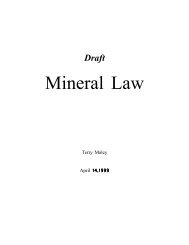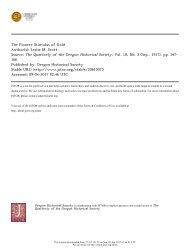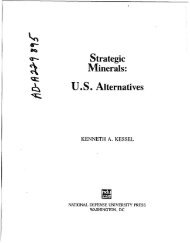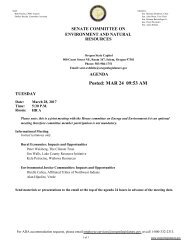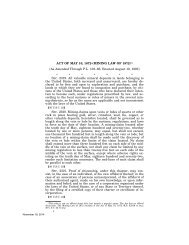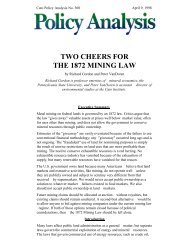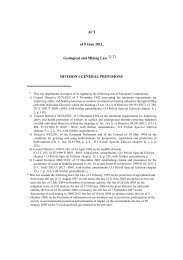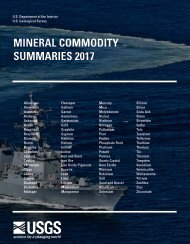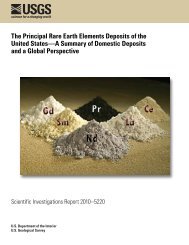tidwell-brief
TWIN CEDAR MINING DISTRICT LOCAL GOVERNMENT WITH HOME RULE HAVE TO DO GOVERNMENT TO COORDINATION AS MINING DISTRICTS ARE LOCAL GOVERNMENT
TWIN CEDAR MINING DISTRICT LOCAL GOVERNMENT WITH HOME RULE HAVE TO DO GOVERNMENT TO COORDINATION AS MINING DISTRICTS ARE LOCAL GOVERNMENT
Create successful ePaper yourself
Turn your PDF publications into a flip-book with our unique Google optimized e-Paper software.
“California is not merely geographically proximate to the areas of<br />
issue---those areas are within its boundaries. In a case involving a<br />
challenge to a Forest Service decision to allow logging in the Sierra Nevada<br />
Forest, the Ninth Circuit held that ‘special solicitude’ should be afforded<br />
California’s stake in its natural resources’. Sierra Forest Legacy v. Rey, 516<br />
F.3d 1228 (9 th Cir. 2008)”. . .<br />
“Congress plainly recognized and endorsed the respective states’<br />
interests in the management of national forests by enacting the provision of<br />
the NFMA requiring the Forest Service to coordinate forest planning with<br />
state resource management processes. See 16 USC Section 1604(a). In<br />
light of this statutory recognition, it would be odd indeed to hold that<br />
California has no concrete interest in activities in the national forests.<br />
California has a concrete interest in the management of national forests<br />
within its borders.” (Fn. 2)<br />
This decision applies equally to each of the local government entities in this<br />
Case. Each is directly proximate to the areas of the Forest that lie within its<br />
boundaries. Each has the same “special solicitude” as to its stake in the<br />
condition of its natural resources. And as to all plaintiffs, Congress<br />
“recognized and endorsed” their interests by requiring the Service to<br />
coordinate with “local government”. The same statute relied on by California<br />
recognizes the same standing of local governments---in the very same<br />
section of the statute.<br />
The Court also ruled against the Forest Service on its argument that under<br />
Chevron, the Court should defer to its position that coordination requires<br />
only that the Service “talk to state entities and consider their views.” First,<br />
the Court said that Chevron did not require deference to the Forest Service’s<br />
interpretation of a statute or a statutory term, citing Bowen v. Georgetown<br />
University Hospital, 488 U.S. 204 (1988).<br />
Further, the Court held that even if the Service were to be allowed to<br />
interpret the statutory meaning of “coordination”, the interpretation would<br />
not be that given by counsel in litigation, but that given in regulatory fashion<br />
by the Secretary of Agriculture. It held that the 1982 Planning Rules<br />
provided an interpretation of coordination that far exceeded the mere duty<br />
to “talk. . .and consider. . .views.”<br />
30 | P a g e




